|
If you’re going through divorce, it’s normal to feel worried about your finances and your financial future. Having a financial plan in place can help you reduce the stress associated with divorce and it's key to being prepared as you negotiate your divorce. In this blog post, we’ll cover the basics of creating a financial plan for your post-divorce life, including budgeting, saving, and preparing for retirement.
Creating a Budget A budget is the foundation of your financial plan. In order to create a budget, you must first compile the last 3 years of your bank and credit card statements. You also need to have information about all of your assets and debts. As you understand your monthly income and expenses in the past and how they will change going forward, you can make sure that you have enough money each month to support yourself and your children’s needs. Create a list of all your income and expense including:
Saving for the Future It’s important to save for emergencies and retirement, even after divorce. An emergency fund should have enough money to cover three to six months of living expenses in case of an unexpected event. Start by setting aside a small amount each month to put into your emergency fund. You can also start saving for retirement as soon as possible. Consider opening an IRA or other retirement savings account and contributing regularly. Hiring a team of professionals Divorce professionals can help you in many different ways and are an important part of successfully getting through your divorce process. A financial professional can help you prepare a budget and create a plan for your financial future. A divorce coach can help you efficiently use your other divorce professionals which can save you money. Divorce coaches can also help you determine your priorities which can save you time that you would have spent fighting for things that aren’t important to you. Divorce attorneys can be used as consultants to answer your legal financial questions. Other professionals that you may need include a realtor, mortgage broker, and an accountant. Creating a financial plan after divorce can help you take control of your finances and ensure you’re prepared for the future. Start by creating a budget and tracking your income and expenses. Next, save for retirement and an emergency fund and make sure that you hire a team of divorce professionals to support you as you go through your divorce process. With a solid financial plan in place, you can feel confident that you’re doing what you need to do to protect your and your children’s financial future.
9 Comments
For individuals going through a divorce, the holidays can be a challenging time. Finding ways to manage the difficulties of a divorce during the holidays is possible. The following helpful tips can make your holiday season a happy one.
Surround Yourself With Family and Friends Regardless of the time of year, going through a divorce can be an extremely emotional and lonely time. Surrounding yourself with family and friends is a great way to feel supported while going through a divorce during the holidays. Close family and friends will want to be supportive as you go through divorce. But they may not understand how isolating the holiday period is. Even if it’s a little uncomfortable, reach out to close family and friends to let them know you’re struggling. Tell them that you don’t have plans or that you’ll be alone. Being with family and friends can improve your mental health and keep your mind busy with something other than the divorce. Plan something fun with people you’re close to and you’ll start seeing a positive future for yourself and your children. Make New Traditions While the holiday season is always filled with traditions, going through a divorce is bound to change them. Making new traditions will help families who have children keep the holiday spirit and distract them from the challenges of change. It may be the first time your kids are spending the holidays with one parent instead of two so having new activities planned can help them better adjust to this new time in their life. Take Care of All the Logistics Make sure to take care of as many logistical aspects of parenting time before the holidays. When you’re dealing children and all of the busyness of the holiday season, it’s critical to get the parenting schedule settled way in advance. With the help of an experienced divorce coach, you can make sure that you’re prepared so there won’t be any last minute conflicts and you’ll be able to enjoy the holidays without stress. As you’re going through divorce, you probably won’t have a set parenting schedule. You may want to avoid speaking to your STBX about this, knowing that it will be a tense conversation. But avoiding the conversation only makes things worse. If you don’t want to speak to your STBX, email is a great way to communicate. Have your divorce coach or a trusted friend read over the email before you send it. While it may be stressful, planning ahead makes it easier on everyone. Children benefit when they know what the schedule is. Communicate with your children about holiday schedules to alleviate any guilt or sadness they may be experiencing for spending the holidays with one parent versus both. You Can Have a Happy Holiday Season as You Divorce! Reflecting on the past around the holidays is common, but it’s crucial to try to put the past where it belongs - in the past. When going through a divorce during the holidays, try to think of the future and make a list of all the things you want to do in the next year. Getting excited for new experiences is a great way to let go of the sadness around divorce and start moving forward in your life. If you put the past in the past and focus on the future, it will be easier for you to develop new traditions with your friends, family, and children and will enable you to be grateful and enjoy the present. Divorce is never easy, and there are always setbacks when you’re going through the process of divorce. A setback is when you think things are going okay but then something happens and you’re back in an angry, scared or sad place. Your soon-to-be-ex (STBX) may send a mean text or your child says something hurtful. You thought you had agreed on something and your STBX takes it back. Setbacks can be incredibly frustrating, but most people experience setbacks during the divorce process. Here are four ways to tackle setbacks during divorce.
1. Ask Yourself What Can You Learn? When you're thrown into a setback, for example your STBX sends a mean text, you can experience anger, frustration and sadness. Use that time to sit in your thoughts by journaling, talking through your feelings or drawing how you feel with art therapy. It can be very therapeutic to get those feelings out and figure out what’s behind them. Are you mourning the loss of your intact family? Are you blaming your STBX for all that happened in your marriage? If so, what can you take responsibility for? Ask yourself what can you learn from your marriage? When you think about what you can learn from your marriage, don’t focus on blaming yourself or your STBX. We all make mistakes and part of your personal growth journey is to understand what mistakes you made and do things differently. A lot of my clients say that they learned that they can’t trust anyone. But when you think about this further, you realize that there are trustworthy people and it’s not that you can’t trust anyone. It’s that you need to be more aware of who to trust. You may have allowed things to happen in your marriage that you shouldn’t have. You can do something about that - you can learn to set healthy boundaries. Maybe you realized that you weren’t as kind as you should have been at times. Taking responsibility for what you’ve done in your marriage will help you stop focusing on what’s out of your control (your STBX) and start focusing on what you can do differently in the future. You’ll stop feeling so much anger and you’ll start to process all of your feelings. By doing this, you will give yourself an amazing gift - the opportunity to heal. 2. A Setback Doesn’t Mean It Will Be This Way Forever When you experience a setback, it doesn't mean you're back to square one. A setback is a temporary situation that will be resolved at some point. But when setbacks occur, It’s hard not to let yourself spiral and have negative thoughts: “We’re never going to get through this divorce process!” “She won’t ever be reasonable!” “He always goes back on what he says!” These negative thoughts can lead you to feel awful as you go through a setback. But take a few deep breaths and center yourself. Tell yourself, “This is a temporary setback and I will figure this out.” If you feel calm and centered, you can find a way to get through the setback. Remember, you've come through so much already, you can get through this too! 3. Be Extra Kind to Yourself During a Setback When we are having a setback, we can become angry with ourselves - for getting married to this person in the first place, for making mistakes or for not getting out of the marriage sooner. We can get stuck in negative thought patterns that only make us feel worse. For example, you might tell yourself things like “I’m such a failure” or “I’ll never be able to find someone else.” These kinds of thoughts hold you back from moving on and rebuilding your life. Whenever you catch yourself thinking something negative, stop and replace it with a positive thought. Instead of “I’m such a failure,” try saying, “I’m learning from this experience, and I’ll be stronger for it.” Or instead of “I’ll never find someone else,” tell yourself, “I have a lot to offer, and I will find someone who appreciates me.” It may take some practice, but changing your self-talk is an important way to be kind to yourself. Keep in mind that you’re going to go through a roller coaster of emotions and that’s normal. You may not be able to function at your job like you normally do and that’s ok. Give yourself a break and be gentle to yourself instead of beating yourself up. Practice self-compassion. Give yourself time to get through this. You’re strong and you will overcome this setback! 4. Focus On The Present Getting caught up in worry and stress about the past or the future is common during a setback. Will you be able to support yourself financially? Where will you live? How will your relationship with your children change? Worrying about these things will make you anxious and stressed. Dwelling on the past won't do you any good either. One of the best things you can do for yourself during a setback is to make a list of things that make you happy. This can be anything from spending time with friends and family to taking a yoga class, developing a hobby or going for a walk in nature. Once you have your list, use it to form your weekly schedule and develop daily and weekly goals. This will help you stay in the present during any setback. Final Words Setbacks can be tough but if you ask yourself what can you learn, if you know that they don’t last forever, if you’re kind to yourself and you focus on the present, you can tackle any setbacks that you may encounter during your divorce. Remember, if you feel you need additional support at any point, don’t hesitate to contact a divorce coach or counselor. They will be able to provide you with the guidance and resources you need to get through this challenging time. Going through divorce is one of the most difficult experiences anyone can go through. You feel so many emotions including sadness, fear, anger, betrayal, and grief. And some people can get stuck in these emotions where it's difficult to move forward in their life. It's normal to feel all of these emotions and it’s so important to be able to process these emotions as you go through your divorce so that you’re not stuck in a bad place.
Following are tips so that you can become unstuck and feel empowered as you go through divorce. Be Kind To Yourself It's easy to beat yourself up for all of the mistakes that you made in your marriage and for your marriage ending. But if you do that, you’re making it harder on yourself. Remember that you’re doing your best and that’s enough. Find a positive mantra like “I’m not perfect and it’s ok.” Repeat that positive mantra any time you feel that you’re engaging in negative self-talk. Remember that you are valuable and deserving of respect, regardless of what past mistakes you made. If you start being kind to yourself and actively work at changing your negative self-talk, you’ll start feeling better. Cultivate Emotional Intelligence Emotional intelligence entails learning to control emotions, establish boundaries, and communicate effectively. It’s so hard to do that while you’re going through divorce because you’re feeling so many intense emotions. But there are some techniques that can help you to be more in control of your emotions. Start by breathing deeply for 20 breaths several times a day. The best way to do this is to push your stomach out when you’re breathing in and pull your stomach in when you’re breathing in. They’re called abdominal breaths and they enable you to take much deeper breaths than regular chest breaths. Another technique that can help is developing a meditation practice. Meditation actually changes the way that your brain functions. Yoga and exercise are also helpful in controlling emotions and developing an ability to center yourself. From that feeling of being centered will come an answer on how to communicate more effectively. There are so many boundaries that have to be established as you go through divorce. Your relationship has changed and you need to navigate a new way of interacting with your soon-to-be-ex (STBX). Even if you’re still living in the same house, you can create boundaries by establishing a parenting schedule and being clear about who has what responsibilities. If you’re living separately, it’s easier to create boundaries but communication without being emotional is key to establishing healthy boundaries as you go through divorce. If you’re having difficulty doing it on your own, you can work with a co-parenting counselor or another professional like a therapist or divorce coach. You’re Stronger Than You Realize Recognizing your own strength is essential to being able to become empowered as you go through divorce. Think about all of the things that you have experienced in your life. Was there something that happened in your childhood that was difficult? Did you take care of your children through any stressful times? All of us have gotten through tough times but we may not give ourselves credit for getting through them. It’s amazing how we minimize our strengths just at the time where we need to see them and believe in ourselves. Ask yourself what are the characteristics that you have that have gotten you through past difficult times? Are you smart, hardworking, responsible, brave, creative, kind, empathetic, fair, loyal, authentic or grateful? Take time to focus on the positive traits that you have and recognize how strong you really are. By recognizing your own strengths, you can rebuild our confidence and truly believe in our ability to get through difficult times. Start Enjoying Alone Time As you go through divorce, you’re going to have more time on your own. Many people worry about that time and that they’ll feel lonely. You can look at this time in a negative way. But you can also reframe your time alone as a gift - it’s a time that you get to decide what you want to do without considering anyone else. You get to be selfish and just think about what you want without compromising. You can read a book, watch a movie, go shopping, go out to dinner by yourself, listen to music or go for a long walk. There are so many things you can do by yourself that can be so enjoyable. Most people who do this find that they really like spending time alone and don’t feel lonely at all! Experience New Things What have you always wanted to do? Is there an activity that you used to do that you gave up during your marriage? What makes you happy? Divorce is an opportunity to start living your life differently. You can start hiking, biking, traveling, playing bridge, bird watching or really anything you’ve always wanted to do. If you look at your divorce as an opportunity to change your life in positive ways, you can get unstuck and feel empowered. You'll need to learn how to budget your money, cook for yourself, and take care of your home. This can also provide a feeling of being empowered and you may find that you’re happier than you’ve been in a long time! Final Thoughts Moving from stuck to empowered in divorce is not always easy, but it is possible. Being kind to yourself, cultivating emotional intelligence, focusing on your strengths, enjoying alone time and experiencing new things will help you feel empowered as you go through divorce. Don't hesitate to reach out for help if you’re struggling through your divorce. There is no shame in admitting that you need some assistance getting through this tough time. Contact a divorce coach today and see how much better you can feel. Divorce is complicated and men are faced with specific issues that they deal with when going through a divorce. Here are 6 guidelines for men who are getting divorced.
1. PLAN AHEAD Whether you are the one who decided to divorce or not, it’s essential that you have a plan on how you’re going to get through your divorce. You can save thousands of dollars and a ton of time and heartache by having a plan for your divorce process. Below are some pointers to help you prepare and plan for your divorce:
2. STAY CIVIL WITH YOUR EX If you're hoping to negotiate your way through your divorce, which is the process that I recommend, it's extremely important to be civil to your soon-to-be-ex (STBX). Put your emotions aside for now and focus on communicate effectively with your STBX. It's important to stay calm and avoid being provoked by any aggressiveness or hostility. Divorce causes people to become emotional so empathize with your ex and understand that they’re going through a lot. It's also important to watch your tone and keep your anger in check. Remember, the goal is to make the process as amicable as possible, especially if you have children. By keeping these things in mind, your divorce process will be much less stressful and more likely to produce a favorable result. 3. DON'T MOVE OUT IMMEDIATELY It’s not pleasant to live with your STBX while you’re going through divorce. Many men will be quick to move out of the marital home because they think that it’s their responsibility to move out and let their children’s mother have the home. But that’s not usually the best solution because in many cases, the court will assume that the first spouse to leave the marital home needs it the least. In addition, moving out makes it more difficult to see your children and get property that you’ve left at the house. Of course, this isn't always possible or practical. If you and your wife are having difficulty living together, it may be best for everyone if you give her some space by moving in with a friend or relative. But if you can hold out until you have an agreement, you won’t have to worry about access to your children or your property. 4. HAVE A SOLID PARENTING PLAN WITH YOUR STBX Your parenting plan is the structure for how and when you’ll see your children after you divorce. Many dads don’t realize how important they are to their children and will give their children’s mother more time than they want to. Children need both parents in their lives so make sure that you have a significant amount of time with your children written into the parenting plan. If you have joint custody of your children, try to make decisions together about their care and education. Respecting each other's parenting styles and schedules is important. By working towards positive co-parenting, you can help your children adjust to the divorce and ensure they have the support they need from both parents. 5. UNDERSTAND YOUR FINANCES Most people don't think about the financial aspects of divorce until they're in the middle of it. But if you're getting a divorce, it's important to be as prepared as possible financially.
6. NEVER SAY ANYTHING NEGATIVE ABOUT YOUR STBX IN FRONT OF YOUR CHILDREN When you say something negative about your children’s other parent, it hurts your children. If you really want to put your children as your priority, you will support their relationship with their other parent. Children love both of their parents and don’t want to be caught in the middle. Studies have shown that children are hurt emotionally when their parents have a bad relationship. Even if your STBX doesn’t communicate well with you, it’s your responsibility to do the right thing. Ignore the negativity, take a break to collect yourself and respond in a respectful way. It takes two people to fight so if you’re not participating in it, it won’t go anywhere. You’ll never regret taking the high road and your kids will benefit. Final Words You are not alone in this process; there are people who can help you through it. Seek out resources like a divorce coach, a therapist and a divorce support group to help you through this difficult time. And remember, the decisions you make during your divorce will impact the rest of your life, so take your time and make sure you make choices that are best for you and your family. When a couple decides to divorce, it's an extremely emotional and challenging time. One of the most important decisions they will make is how to proceed with the separation process.
Many divorcing couples opt for mediation because it is one of the most effective and least expensive divorce processes. If you want to get your spouse on board to mediate your divorce, there are a few things you can do. Focus On How It Can Benefit Both Of You There are many benefits of mediation, especially when compared to going to court. Mediation is typically less expensive and quicker than going to court, and it also allows the parties to have more control over the outcome. In addition, mediation can help to preserve relationships and allow the parties to move on with their lives more quickly. The mediator is impartial and doesn't take sides but facilitates communication and helps the parties find common ground. Because mediation is more collaborative than adversarial, it can often resolve complex issues more quickly and much more effectively than litigating your divorce through the courts. If Your STBX Doesn't Want To Talk, Find Other Ways to Communicate Divorce can be incredibly challenging when couples are not on speaking terms. In addition to the emotional toll, there can be confusion and misunderstandings. It’s important to find a way to communicate, either through email or text. Let your STBX (soon-to-be-ex) know that 95% of divorces don’t go to trial and that mediation is one of the most effective way to avoid a trial. An experienced mediator can provide guidance and support throughout the process and offer resources that can help couples resolve their differences. If your STBX is against mediation in the beginning of your divorce, allow for some amount of time to pass before you bring up mediation again. As people learn more about the divorce process and how expensive attorneys are, they usually become more reasonable with respect to mediation. Make It About Your Kids Trained family mediators can assist you in developing communication and conflict resolution skills during their sessions. This can be extremely helpful after divorce, as both parents must be able to communicate effectively to constructively resolve conflicts for the good of the children. The mediator can help you understand the root causes of the conflict, develop a plan for dealing with future disagreements, and create a parenting plan that is in your child's best interests. With the help of a mediator, you can learn to co-parent effectively and create a healthy environment for your child. Never Force The Issue It's important to remember that mediation is a process for couples who want to resolve their differences amicably. Trying to force your spouse to participate will only lead to frustration on both sides. Take a step back and let some time pass. Revisit the issue after you both have had time to educate yourselves and understand what your options are. Final Words Mediation may be the best option for you if you are considering divorce and want to do it in the most amicable way possible. Mediation allows both parties to agree without going to court and often results in a fair settlement for everyone involved. In order to be on the same page as your spouse, it may take time, patience, and education for you to both agree that mediation is the best option for your divorce. child support: what it is and what it isn'tAs you go through divorce, it’s important to understand what child support is. In this blog post, we'll explore the ins and outs of child support so that you can avoid any potential misunderstandings down the line.
Child Support is Calculated Using a Formula In the United States, child support is typically calculated using a formula that considers both parents' income, the number of overnights with each parents per year, the amount a parent pays for medical insurance and the number of children involved. The specific formula varies from state to state, but the general idea is that the parent with the higher income will pay child support to the parent with the lower income. Child support is intended to cover food, clothing and housing. Other child-related expenses must be worked out between the parents and put into their agreement. Child Support Isn't Tax-Deductible Many people are surprised to learn that child support payments are not tax-deductible. This is because the payments are intended to cover the costs of raising a child, which are not considered business expenses. The IRS considers child support a personal expense, like rent or groceries. Failure To Pay Child Support Brings In Legal Consequences If you fall behind on child support payments, the other parent may take you to court. The court may then order that your wages be garnished or that your bank accounts be frozen. You may even be ordered to pay a fine or go to jail. In some cases, your driver's license may be suspended. The Age that Child Support Ends Varies by State In the United States, the age a child is emancipated, or becomes an adult in the court’s opinion, is when child support ends. This age varies by state - for example, in Colorado, child support ends when a child is 19 years old and in New Jersey child support ends when a child graduates from college, if the child is attending college. In many states child support ends when a child reaches 18 years old or graduates from high school, whichever comes later. There are exceptions to these rules, such as if the child has a disability that prevents them from becoming self-sufficient. College Expenses Are Not Included In The Calculation The cost of college is a major expense that is not included in the child support calculation. This can burden parents struggling to pay for their child's education. There are a few reasons why college expenses are not typically included in child support calculations:
Having No Job Doesn't Mean A Parent Doesn’t Have To Pay Child Support A parent is responsible for paying child support if they don't have a job. The court will consider many factors when determining the ability to pay, including the parent’s income, assets, and expenses. How much the parent pays is based on their ability to pay, not their employment status. If the parent doesn’t have a job, the court may impute income based on their past or potential earnings. Final Thoughts It’s important for parents going through divorce to understand what child support is, how to calculate it and what it doesn’t cover. You can find your state’s child support calculator and input the information that’s needed to get a good idea what child support amount you’re going to pay or receive. Once you know the child support amount, you can then calculate the other pieces of your financial picture. Understanding child support is a critical part of your overall financial settlement. If you need help with any of this, reach out to an experienced divorce coach who can walk you through all of this. Divorce is a big decision and has an impact on many parts of your life. It's essential to think through both the emotional and practical aspects of divorce before you make the decision to divorce your spouse. The following questions can help you as you come to a decision one way or another.
Do I Really Want It? The first step is to be honest with yourself about why you want to divorce. Are you threatening divorce because you want your spouse to pay attention to you? Do you still love your spouse? Do you have fun with your spouse when you’re alone on vacation? Are you happier being alone than being with your spouse? If you think that you would be happier with someone else, that might be true, but it isn’t the only thing to consider. Imagine what your life would be like if you were alone - how would that feel? You may meet someone else eventually but you may not. If you would rather be alone than with your spouse, that’s a good indication that something is wrong in your marriage. How Are My Children Going to be Impacted? Divorce is difficult and many parents don’t get divorced because they think that they’re protecting their children. However, children can be protected from the negative impact of divorce. There are several things that divorcing parents can do to minimize the harm to their children including avoiding conflict, not putting the children in the middle of their parents, never speaking negatively about the other parent and making sure that the children have a support system. Friends, a therapist, teachers, and other community members are all important parts of your children’s support system. If parents put their children first during their divorce, their children can have very happy lives. Will I Be Financially Stable? In addition to the emotional stresses of ending a relationship, you also have to deal with the financial realities of dividing assets, determining child support and alimony and paying bills. If you're not prepared, these issues can become overwhelming. Make sure you have a clear understanding of your finances; this means knowing how much money you have coming in each month, your expenses and your assets and liabilities. Knowing about your finances will give you a better idea of what lifestyle you can afford and how your post-divorce life will be. If you are worried about your finances, remember that this is just a temporary setback. With time and patience, you’ll eventually be able to rebuild your life and your financial well-being. Have I Done Everything That I Could? It’s essential to take a step back and analyze your role in the issues in your marriage. If you're unsure where to start, here are some questions to ask yourself: Have I exhausted all of my options? Have I had an open and loving conversation with my partner? Have I requested counseling and, if it was refused, gone to a therapist alone? Instead of repeating the same old responses and reactions, have I tried to change my behavior? Taking the time to answer these questions honestly can help you better understand your role in the problems in your marriage and see how you can behave differently whether you’re in your marriage or not. Final Thoughts If you are considering a divorce, it's important to take the time to ask yourself some tough questions. A divorce coach or a therapist can help you navigate these murky waters and make sound decisions that will affect the rest of your life. Don't go through this difficult process alone – talk to someone who can help guide you on your path forward. There are many myths and misconceptions about divorce, so it's essential to have accurate information when you’re thinking about or going through divorce. This blog post will debunk some of the most common myths and provide facts that will help you manage your feelings during this difficult time.
Myth #1: You'll never be happy again It’s a common misconception that divorce permanently destroys people's lives and leaves them unhappy. While it’s true that divorce can be a stressful and challenging experience, it does not have to be a life-destroying event. In fact, many people find that they ultimately land in a happier and more fulfilling place after divorce. If you’re facing divorce, try to keep an open mind and remember that your life is not over. You’ll still have the chance to create the future you want, regardless of what’s happened in the past. With the proper support and perspective, it’s possible to emerge from divorce stronger and more confident. Myth #2: You can do this on your own Many people feel shame as they go through divorce and don’t reach out to friends and family for support. This is exactly the opposite of what you should do. You need as much support as possible – friends, family, a therapist, divorce coach, your religious community – anyone who will be supportive and non-judgmental. You don’t have to tell everyone about the divorce. Choose wisely who you can trust and share what you’re going through. You’ll find that will decrease the feelings of shame and you’ll build a supportive community who will help you get to the other side of your divorce. Myth #3: The marriage failed so you’re a failure People going through divorce feel like they’ve failed. However, people who go through divorce are some of the strongest people. You're faced with daily obstacles like how to communicate with your soon-to-be-ex (STBX) when they’re not respectful, how to explain difficult topics to your children, how to look for a new place to live and how to manage your emotions so that you can work and take care of your children. Each obstacle you get through is a success and demonstrates how strong you are. Myth #4: Rushing into a new relationship makes divorce grief easier One of the biggest myths about divorce is when people think that if they find a new partner, their grief will end. Grief is a process that takes time and if you don’t allow yourself to go through the grieving process, you’re just avoiding and delaying the grief. It's important to give yourself time to grieve the loss of your marriage before jumping into another relationship. The grieving process involves giving yourself the time to feel uncomfortable emotions and expressing those emotions finding by journaling, talking about them with friends or family, or working with a therapist. If you don’t give yourself the time to process your grief, you'll just repeat the same pain and hurt cycle. Once you have given yourself time to grieve and heal, then you can start fresh with someone new when you're emotionally ready. Divorce can be a difficult and isolating experience, but you don't have to go through it alone. There are plenty of resources available to help you through this tough time, including divorce coaches, support groups and therapists. Take advantage of these resources and allow yourself to grieve in a healthy way. Divorce is a complicated, legal transaction. If you’re considering or have decided to get a divorce, it’s important to take some necessary steps to prepare for your divorce. Here's a checklist of five items to prepare for divorce.
1. Delay Significant Changes Until You Have a Signed Agreement Unless there is abuse or an unsafe situation, in most states you are required to continue to live as you have been until the divorce agreement has been finalized. For example, you should continue to deposit your paychecks into joint accounts if that’s how you handled finances in the past. If you have separate bank accounts, then you can continue to keep it separate. If you’re living in the same house, you probably should stay in the house together until you get to an agreement. This can be stressful. Focusing on your children and getting emotional support will help you make it through this temporary period. 2. Inventory your Personal Property List everything you own and co-own with your spouse. Gather relevant paperwork and take photos if necessary.
3. Organize and Separate Your Personal Information There are many things to be aware of when going through divorce regarding your personal information. Here are some important items to think about:
4. Gather Important and Essential Financial Documents Both you and your spouse need to collect the following documents during the process:
Start understanding your finances by making a monthly budget, raising your income, and putting an emergency fund in place. Then think about whether or not you're going to stay in the home or move out. There are many decisions to make so thinking about what you want in your future is helpful. 5. Hire a good Divorce Coach All of this can be overwhelming. Working with an experienced divorce coach will help you manage all aspects of the complicated divorce process. A divorce coach will help you decide what professionals you need which may include a financial professional and an attorney, among others. A divorce coach will help you decide what divorce process is best for your individual situation. A divorce coach will help you determine your goals and priorities and understand how to negotiate for what you want. Divorces can be very complicated. There are so many decisions you have to make. Divorce coaches can help you avoid costly mistakes. Hiring a divorce coach protects you and reduces stress. Final Thoughts A divorce can be challenging, but you can make it through and thrive. Let go of expectations and take one step at a time. Use your checklist and support network and you can come out stronger. When going through divorce, parents can get swept up in the divorce negotiations and not recognize the impact on their children. It’s important to know how to prioritize your children’s needs as you go through your divorce process. Following are some things to consider:
1. Kids can be ok, even in divorced families. The main predictor in positive outcomes for children is how much conflict there is between parents, not whether or not the parents are divorced. Therefore, if you stay in a marriage for the children but there is conflict and tension in the marriage, you’re not helping your children. On the other hand, if you get out of a high conflict marriage and have two happier parents who aren’t in conflict with each other, your children can be better off. 2. Compromise to lessen conflict with your soon-to-be-ex (STBX). If your STBX isn’t being reasonable and your attorney is telling you to fight for what you deserve, choose your battles wisely. Just because your attorney tells you to fight for something, doesn’t mean you should. You have to weigh the negative consequences on your children before you decide to fight with your STBX. For example, many of my clients have had their attorneys push them to do something that increases the conflict with their STBX. Attorneys may not realize the negative emotional impact of conflict on you or your children. Think about your children as you’re negotiating your agreement and, if possible, lessen the conflict. 3. No matter how your STBX treated you, it doesn’t mean they won’t be a good parent. If your STBX treated you poorly during the marriage, it doesn’t mean that they’ll treat your children the same way. Support your children’s relationship with their other parent as long as their other parent is not abusive. If your child is having difficulty with the relationship, you may be tempted to pile on - saying, “Isn’t he/she horrible?” Instead, encourage your children to talk to their other parent about how they feel. 4. Don’t focus on what’s fair, focus on what’s best for you and your children. There are issues that need to be worked through and it may not feel fair. But you have to compromise on so many things – it rarely feels fair. For example, when you’re going through divorce, it may not feel fair to give 50% custody to a parent who didn’t take on 50% of the childcare before the divorce. However, if both parents are willing to step up, that’s better for your kids. Putting your children’s needs first isn’t always easy but as caring parents it must be the priority. Focusing on your children’s needs while you’re going through divorce can take a tremendous amount of self control. Make sure that you’re getting support so that you can think clearly and make decisions that put your children first. You’ll feel better and your children will benefit. Making the decision to divorce brings with it so many emotions - sadness, anger, fear, anxiety, shame just to name a few. And as you’re managing all those emotions, you also need to figure out how to navigate the divorce process, which can be completely overwhelming. So how do you manage your emotions so that you can make logical decisions throughout your divorce process? Consider the following:
Children need structure, even as their parents are divorcing. Many parents feel that they can’t discipline their children because they’re dealing with so much emotionally. But by having clear, defined limitations for your children, it will help your children feel safe and secure which they need, particularly when they’re parents are divorcing.
While maintaining clear rules and limits is important, it’s also important for parents to choose their battles. Now is not the time to be extremely strict or add new rules. Start with one or two of your most critical rules and let your children know what they are. Make sure that they’re used to them before adding more. Give your children about 2 weeks to get used to a new rule before adding another one. It’s also important to involve children in determining what the rules are. Let them make some of the rules themselves and try to come up with some together. You can even add some fun ones like, “Anyone who’s sad gets to choose what’s for dessert.” Post the rules somewhere in your home where everyone can see them. This enables everyone to be on the same page and avoids miscommunication. Too many parents focus on negativity and punishment. If you recognize appropriate behavior and focus on the positive, your children will respond better. Even if there is only one thing that your child does that’s positive, point that out. Children gain so much more from positive reinforcement than negative attention. Remember to work with your children’s other parent and not against them. You can have different parenting styles as long as you respect each other’s differences. Children don’t need you to be aligned on everything but they do need you to both message them that tell they must respect the other parent. Children do best when both parents are involved and they have a good working relationship with each other. You don’t have to be best friends with your children’s other parent, you just need to work effectively with each other. Raising children isn’t easy and when the family is going through divorce, that creates even more complications. However, if you maintain structure for your children, choose your battles, focus on the positive and have a good working relationship with your children’s other parent, you are well on your way to having happy and healthy children. While the holidays can bring excitement, they can also bring stress, especially when a family is going through divorce. Families struggle around who to spend the holidays with, what traditions to continue and what new traditions to begin.
Here are a few tips on how to not only survive the holidays, but create holiday memories that will be happy and long-lasting, even if your family is going through divorce. 1) Focus on what’s best for your children Regardless of what each family or divorced parent wants to do, the priority should always be on the children and what’s best for them. This means that if your son or daughter wants to go to your exes’ house to visit grandma, you need to put aside your feelings towards your former partner and be supportive. This can be difficult, as you navigate the sadness, loneliness or other difficult emotions. Take this time to get emotional support from your support system. If you don’t have one, build one by joining a support group, finding a therapist or divorce coach or reaching out to friends and family. Don’t punish your ex or use your children as bargaining chips. If you won’t allow your children to see their other parent during the holidays, and your children want to, you’re hurting your children. Try to carve out some time – maybe an hour or two – for them to see each other. While this is difficult, it is best for your children. And it will create a better co-parenting relationship for the future when you’ll ask something of your ex. 2) Have a clear plan Talk to your ex in detail about what the holiday will look like, the schedule you will stick to as well as pick up and drop off times. Remember there will be a lot of compromise needed from both ends. It may help to write it in an email so that you can refer back to it if necessary. Remember, communication is key for this to work. 3) Prepare your children for the changes The way that you celebrate this holiday will be unfamiliar to your child which can create stress for him or her. It’s important that you talk to your children and tell them what to expect this year. Unlike other years, this holiday will be split between two homes or it might be spent with one person’s family on Christmas eve and another’s on Christmas day. Ask your children questions – how are you feeling about the holiday? What would make it easier for you? What are you most excited about? What are you least excited about? When children are given the chance to openly talk about their feelings, they feel less anxious. Tell them to have fun with the other parent and to enjoy their time and don’t make your child feel guilty about spending time with your former partner or their family. Reassure them that you will be ok when they’re not with you. The main goal of the holidays is to spend time with your loved ones, and that’s exactly what you should be encouraging your children to do. 4) Have patience with the changes and be kind to yourself The loss of the intact family will be an adjustment hurt for everyone, but it won’t be as difficult as time passes. As you move forward, you’ll choose which traditions to keep and you’ll make new ones. Children are extremely resilient and will look forward to your new traditions and getting to celebrate with both families in different ways. One of the most challenging adjustments for a family going through divorce is having two separate places to call home. This abrupt change can be confusing to children as well as stressful. Portraying the new change as exciting as opposed to something upsetting can help the adjustment go a lot smoother – the excitement of a new home, a new bedroom to decorate, a new neighborhood to explore and new friends to make.
Regardless of whether you're setting up a new address or maintaining the present one, there are several things you can do at home to help your children adjust to all of the changes. Here are a few suggestions: 1. Let your child have a say. If you’re establishing a new home, involve your child in decorating their new bedroom such as picking the color scheme, what sheets they want or posters they want to hang on the walls. If it isn’t possible for each child to have his or her own room, they can have their own space in a room such as their own dresser, shelf space or toys area that is exclusively theirs. They should be allowed to choose what they keep at each house and take items between each as well. How does this help? It creates a sense of belonging in both homes. Many children enjoy having two homes because they get extra attention, which sometimes means having two birthday parties and two sets of Christmas or Hanukkah gifts. 2. Make the new place feel familiar. Too many sudden changes can be overwhelming to a child, but they’ll feel a sense of comfort in their new environment with some familiar belongings around them. If there's something special at your former home that you know he or she adores (a special night light, a photo, or a teddy bear), try to purchase it for the new house or make sure it's always in their "go bag" that travels with them from house to house. Even ordinary items like books, clothes and princess decorated plates can make your child feel more at home. 3. Come up with a packing plan. When your children transition from one house to another, sometimes they’ll forget things. To prevent a melt down, both homes should always have extra toiletries, pajamas, spare clothing, books, and movies on hand. Some schools even provide children who have two homes with two sets of books. Also, help your younger child pack their bags the night before the transition. Overall, the child should be allowed to carry their things back and forth between houses without conflict or tension with parents and parents should cooperate in returning any clothes or toys needed when switching between either home. While you’re starting the parenting schedule with your children, it’s so important to let your child have a say in their new environment, make the new home feel familiar, have a packing plan and try to be patient. This transition is just as difficult for your child as it is for you and by being patient when they forget things and are getting used to their new schedule, you are strengthening your relationship with them day by day. |
AuthorJill Barnett Kaufman is a Divorce Coach, Therapist, Parent Educator and Divorce Mediator. She is an experienced professional who helps clients discover new ways to resolve a variety of challenges when considering divorce, starting the process of divorce or are already divorced. Archives
March 2024
Categories
All
|
|
|
|
Connect with us:
To get more information, click the button below:
For our privacy policy, click here, for our Terms of Use, click here and for our Disclaimer, click here.
|
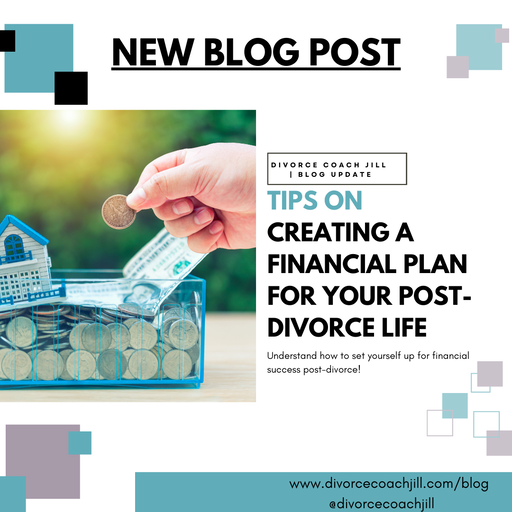

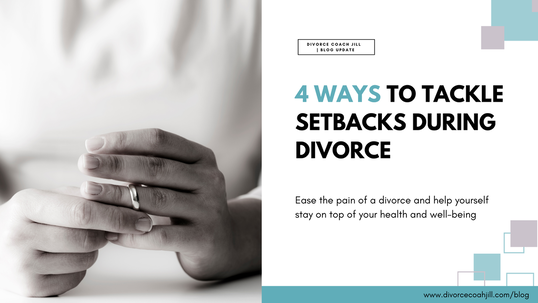

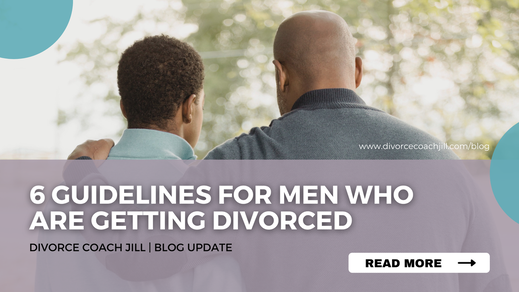

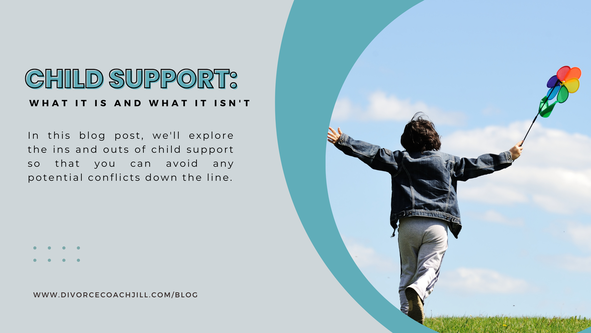
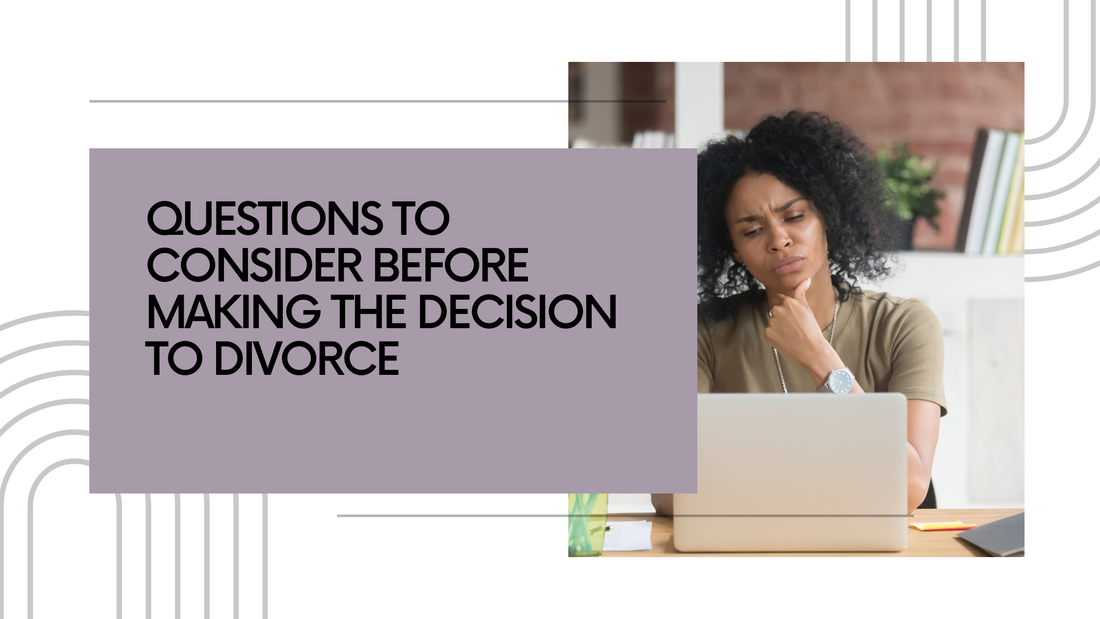

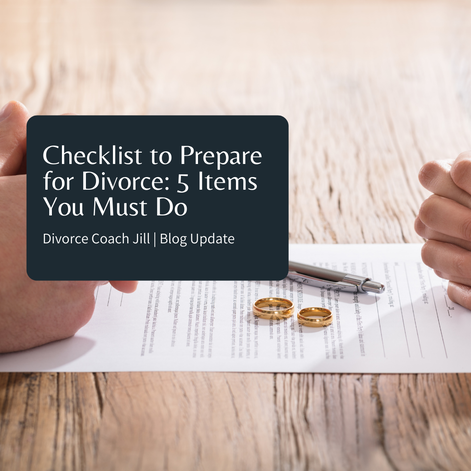


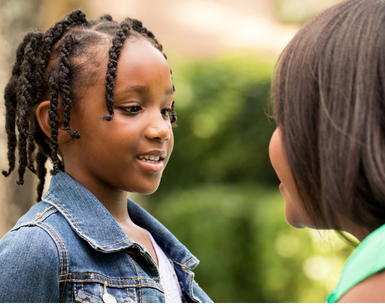

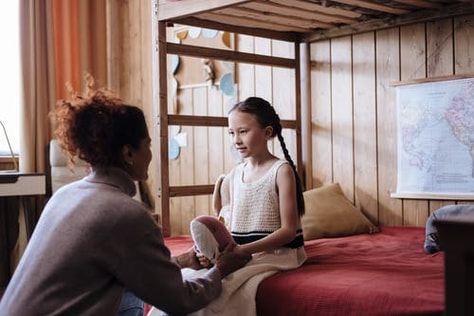


 RSS Feed
RSS Feed
